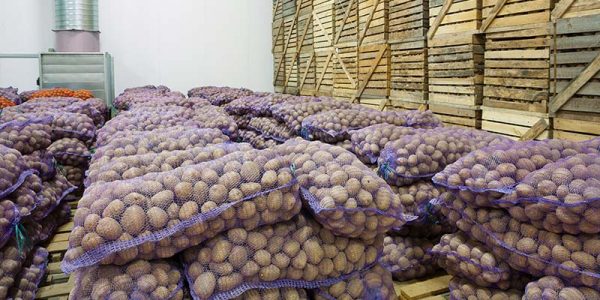The government of Kenya is set to expedite on construction of a grain storage warehouse and an Irish Potato cooling plant in Nakuru County.
Agriculture Cabinet Secretary, Peter Munya confirmed the report and said the project aims to cushion farmers against post-harvest loss and under-pricing during glut. The 110 million shillings Irish Potato cooling plant will be constructed in Kuresoi North and the grain storage warehouse in Njoro.
Under the government’s warehouse receipt arrangement small holder farmers will be able to use their farm produce as collateral on low interest loans from local banks and for subsidized farm inputs and implements.
KALRO
Munya was speaking at the Kenya Agricultural and Livestock Research Organization (KALRO) in Njoro during a field day organized by the Agriculture and Food Authority (AFA) and the National Cereals and Produce Board (NCPB). The CS said the facilities will be duly certified to issue receipts to farmers who will use them to secure the loans. Munya said plant researchers at KALRO are concluding a painstaking exercise of developing new varieties of Irish potatoes that can last long after harvesting, are resistant to diseases and pests and mature faster.
The varieties currently under trials will be unveiled in April next year and the State department for Agriculture in collaboration with local Governments of Potato growing Counties will distribute the flagship seeds of the varieties to farmers in the effort to enhance productivity and profit.
Among the 38 varieties of Irish Potatoes developed by KALRO between 1953 and 2017, the Shangi variety is popular with smallholder farmers in the area but growers have lodged complaints about its short shelf life. Growers have asked for a variety that they can store longer awaiting better prices at the market.
Shangi was released in 2015.It takes 3 to 4 months to maturity. The variety matures early, it is highly prolific, cooks fast and its versatile nature in use made it popular with commercial growers. The CS encouraged farmers to adopt the new seeds of the new varieties once dissemination begins to improve their yields, earn profit and improve their livelihoods.










[…] Source link […]
Comments are closed.